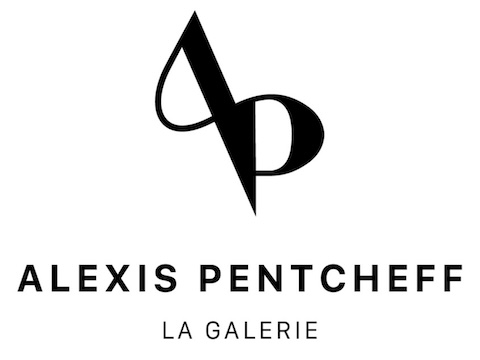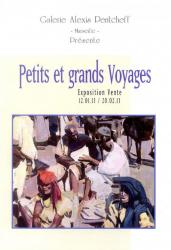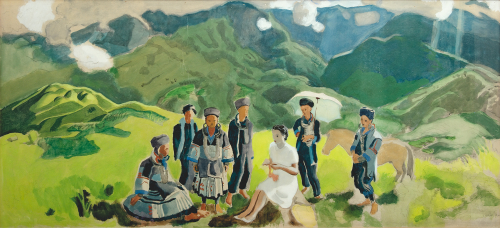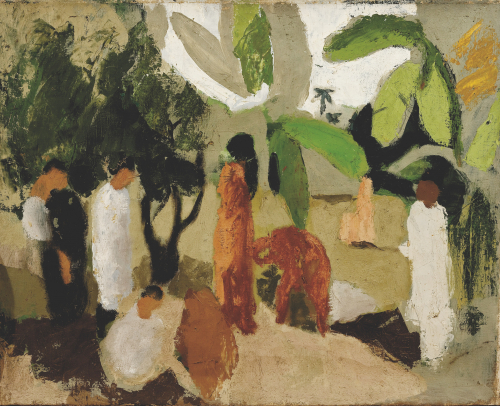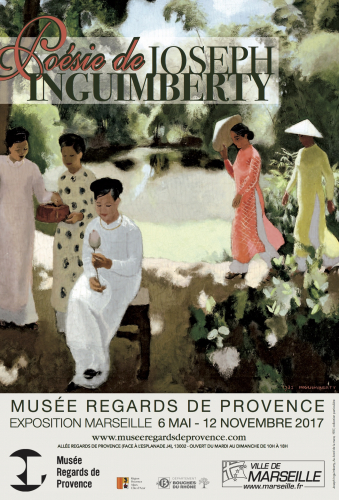Joseph Inguimberty was born in Marseille in 1896. However, he quickly moves away from his native region to pursue his artistic career, enrols in the École Nationale des Arts Décoratifs (National School of Decorative Arts) in 1913 and travels to the Netherlands, Belgium, Italy, and Spain to name a few.
In 1925, he accepts Victor Tardieu’s offer to teach decorative arts at the École des Beaux-Arts (School of Fine Arts) in Hanoi, which has been recently created. He travels with the school’s co-founder, Nam Son, and starts building its foundations. Joseph Inguimberty teaches there for over twenty years, living and working closely with the younger generation of local artists and therefore participating in the birth of modern art in Vietnam.
Alongside Alix Aymé, the painter decides to open a department dedicated to the technique of lacquer and teaches it in a completely new way. Hence, the two artists instigate a genuine renewal in its use. The war puts an end to Inguimberty lasting stay in Indochina and the painter is forced to return to France in 1946.
He then moves to Menton, where Jeanne Bensa, his wife, is from while he still keeps a pied-à-terre in Marseille. Back in his native region, Inguimberty is deeply inspired by the landscapes of Provence, and more specifically olive groves and lavender fields close to the Alpilles. From Menton, he also explores the villages of the Roya Valley, on both sides of the Italian border.
Yet, his production seems to be drastically influenced by his Indochinese adventure. Inguimberty paints lavender fields as a reminiscence of rice fields. Back in the region, his eye must reconstruct Western volumes and capture the Southern light. To achieve this, he recreates his own dimension, paints Provence with a persistent memory of Asia: flat tints, juxtapositions of colours creating volumes, graceful forms, serenity and elegance of the whole composition.
Joseph Inguimberty produces an idiosyncratic work that intelligently depicts traditional landscapes of Provence but yet provokes a feeling of distance, which stays away from space and time. With his art, Inguimberty challenges conventions, boundaries.
The artist regularly visits the Quai de la Joliette, which in the 1920s had inspired him for monumental compositions dedicated to the work of dockers and now exhibited at the Musée d’Histoire de Marseille (the City’s History Museum).
Inguimberty never consented to paint otherwise than outside, hence translating his own reality onto the canvas. Although the painter is tremendously influenced by his Asian experiences on his return, Marseille remains a constant reference in his work. The lonely young man who had decided at the end of his studies to live the Far Eastern adventure is henceforth an accomplished artist. Prestigious Parisian galleries such as Charpentier et Romanet show his work on a regular basis, while the artist, who does not frequent the artistic milieu of Provence, stays paradoxically almost anonymous in South of France.
In 2012, sixty years after the only personal exhibition dedicated to him in Marseille (at Moullot gallery), the Galerie Alexis Pentcheff paid tribute to the artist in a significant retrospective: Le Sud de Joseph Inguimberty (The South of Joseph Inguimberty). In Vietnam, beyond the colonial controversy, Inguimberty is today recognised as one of the major painters in the country’s history. In clear and direct compositions, he knew better than anyone how to uncover secrets of the Tonkinese countryside, the delta and its inhabitants. But even in Asia, the rest of his production is little known, as if there existed a tight border between the works of Indochina and those of Provence. As if two artists lived in Inguimberty, the traveller and the painter back in his home country. The first book of the artist’s painted work, written by Giulia Pentcheff alongside the painter’s children, attempts to reconcile these two aspects.
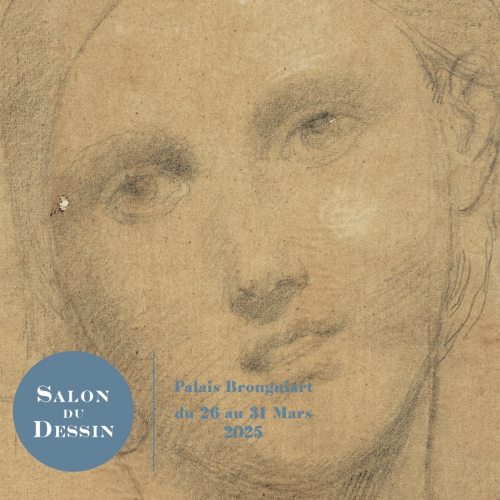
Salon du Dessin
26 March 2025 - 31 March 2025
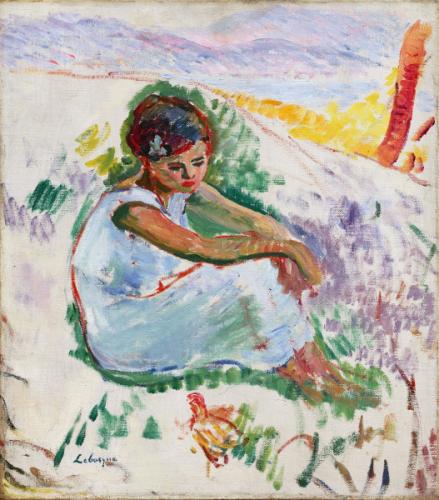
Happy Birthday Galerie Pentcheff
11 January 2019 - 9 March 2019
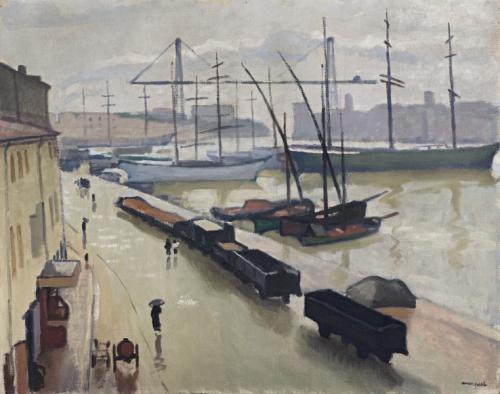
Gallery Reopening
22 October 2015 - 26 February 2016
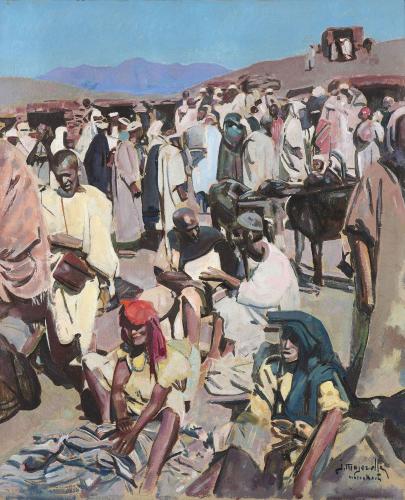
Petits et grands voyages
12 January 2013 - 21 February 2013
